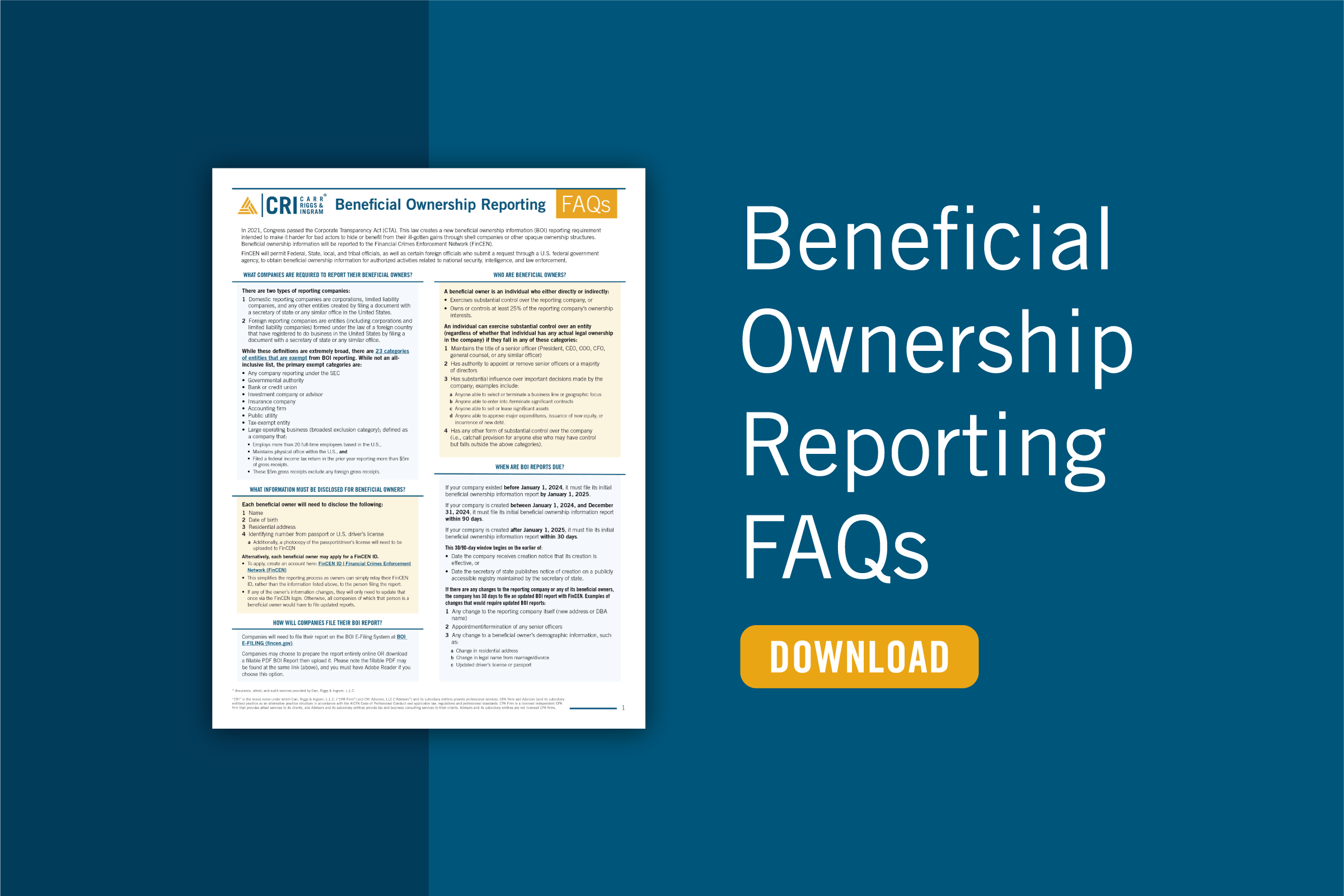One Taxing Situation: South Dakota vs. Wayfair, Inc
Jan 22, 2018
The United States Supreme Court delivered its ruling on the much-talked-about “South Dakota vs. Wayfair” case that will change how interstate sales are taxed. As a result of this ruling, states can now enforce retailers to collect sales taxes regardless of if they have a physical presence in the state. This ruling applies only to sales tax; income taxes are not an issue.
This ruling currently only applies to sales to customers in South Dakota, though Illinois has already adopted similar legislation that goes into effect in October 2018. As a result of this ruling, more states are expected to follow suit and implement these changes as well.
Background of the Ruling
In 2016, the state of South Dakota enacted a law requiring an out of state business/seller to charge sales tax on sales to customers in South Dakota if that business delivers more than $100,000 in goods and services or engages in 200 or more separate transactions for the delivery of goods and services to that state on an annual basis. The Supreme Court upheld this law.
Before this decision, states could not require a business to collect sales tax unless that business had a physical presence in the state (Quill vs. North Dakota). In the “South Dakota vs. Wayfair” case, South Dakota argued that states were losing billions of dollars in sales tax revenues from out-of-state sellers with no presence in their state. The ruling acknowledged that voluntary filing and payment of use taxes by the individuals who purchased goods from out-of-state sellers was “notoriously low.”
The Reign of E-Commerce
“The Internet’s prevalence and power have changed the dynamics of the national economy,” Justice Anthony Kennedy wrote. “The expansion of e-commerce has also increased the revenue shortfall faced by States seeking to collect their sales and use taxes.” The “Wayfair” ruling is a prime example of our economy shifting to the digital landscape of online shopping.
What Does This Mean for Me?
You may wonder how this ruling will impact your business or personal finances. The physical presence rules for sales tax collection have been overruled for businesses, possibly soon subjecting companies to sales tax collection requirements. This new decision provides a clear threshold: over $100k sales or 200 transactions, you will be required to withhold sales taxes in any state that enacts laws following this decision. You will need to keep close track of your sales to other states. For individuals, any purchases made online will likely end up costing more, as sales taxes average around 7%.
Could this ruling even the playing field between brick and mortar stores and online shopping? Only time will tell. If you have questions about how this ruling might impact your professional or personal financial situations, reach out to your CRI professional today.









































































































































































































































































































































































































































































